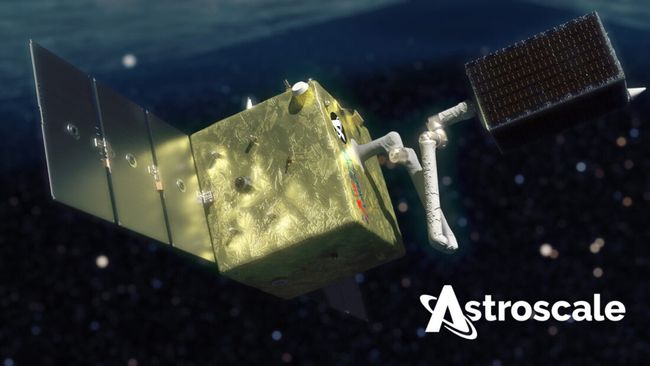Garbage scattered in space became a problem, now it will be cleaned
The waste of defunct satellites has become a growing problem in space. If it is not cleaned in time, it will be difficult to launch satellites in future. But now efforts have started intensifying in this direction. This work of garbage cleaning will start from 2026. Japanese company Astroscale has taken up this task. There is a plan to first pick up the waste of three decades old satellites that have been inactive in space.
It is well known that there are thousands of garbage scattered in space, which are defunct satellites and have become a headache for scientists at present. This garbage is considered so dangerous that it can collide with a living satellite and can cause losses worth crores of rupees. Astronomers have been looking for a solution to deal with this problem for the last decade, now there are chances of getting rid of it. Astroscale is going to do this job. For this he has successfully tested in 2021. The magnetic system was used in this experiment and a piece of simulated debris was successfully picked up. In this mission, the help of the robotic arm of the International Space Station will be taken. In the first phase of the plan, the garbage of the satellite that was deactivated in the 1990s will be picked up. In which two pieces of defunct satellites owned by Britain have been marked. Both these satellites, launched in the 1990s, have now virtually reached end-of-life. The weight of these satellites is up to 100 kg. These satellites are at an altitude of about 500 to 800 km.
This mission is very challenging
Capturing a dead satellite that has been in space for 30 years is extremely challenging. Because the position of the satellite is not known. Is it broken or in what condition is it? The biggest problem is, space is a very harsh environment. The reality will be known only after reaching there. In this direction, Astroscale believes it can tackle the challenge using autonomous navigation software tested by ELSA-D and a state-of-the-art robotic arm currently being developed by MDA.
Garbage passes at a speed of 24 thousand km per hour
The number of piles of garbage scattered in space is in thousands and this garbage passes through space at a speed of more than 24 thousand kilometers per hour. It would be very difficult to catch them. However, after studying all these problems, Astroscale has come up with a plan. In which there is no scope of mission failure.
Source and photo: Space. com.

Journalist Space science.
Working with India’s leading news paper.
और अधिक जानें

